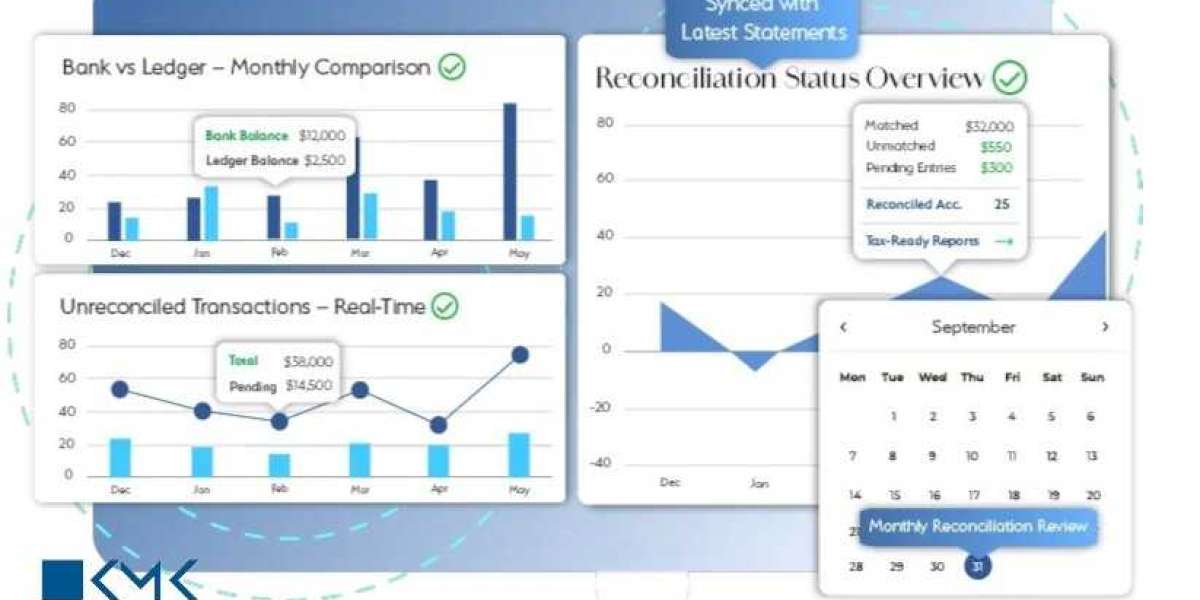Bank reconciliation might sound like a routine accounting task, but for businesses in the U.S., it plays a central role in financial accuracy and fraud prevention. Matching company records with bank statements ensures that every transaction is accounted for, errors are caught early, and cash flow remains transparent. Yet, while the process is critical, it is also time-intensive and prone to human error. That’s why many companies today are relying on bank reconciliation outsourcing services. But why does outsourcing this financial function make sense, especially for U.S. businesses navigating competitive markets and complex compliance rules? Let’s break it down.
What Is Bank Reconciliation and Why Is It Important?
Bank reconciliation is the process of ensuring that a company’s cash records align with what’s recorded by the bank. This step identifies:
Missing or duplicate transactions
Bank charges, interest, and other overlooked adjustments
Fraudulent or unauthorized activity
Errors in internal bookkeeping
For U.S. businesses, accurate reconciliation isn’t just good practice—it’s essential for regulatory compliance, audit readiness, and informed decision-making. Without it, companies risk inaccurate reporting, financial mismanagement, and potential legal exposure.
The Challenge of Handling Reconciliation In-House
While necessary, reconciliation can be challenging when done internally. Many American businesses struggle with:
Time drain – Manual reconciliation eats up hours each month.
Rising transaction volumes – Growing businesses often face higher reconciliation workloads.
Errors – Even experienced teams can make mistakes under pressure.
Limited expertise – Not every staff member is trained in detailed reconciliation processes.
These challenges make outsourcing an appealing option, allowing businesses to maintain accuracy without draining resources.
Why Outsourcing Bank Reconciliation Services Makes Sense
Outsourcing has become a strategic move rather than just a cost-cutting tactic. Here’s why more U.S. companies are adopting bank reconciliation outsourcing services:
1 Improved Accuracy
Outsourcing providers specialize in reconciliation. With advanced tools and skilled professionals, they minimize errors and ensure your books are always up to date.
2 Cost Efficiency
Maintaining a full-time in-house reconciliation team can be expensive. Outsourcing eliminates hiring, training, and overhead costs while giving access to expert services.
3 Fraud Detection and Risk Management
By reviewing transactions with a fresh, unbiased perspective, outsourced providers often spot irregularities or suspicious activities faster than internal teams.
4 Scalability
As your business grows, so does your reconciliation workload. Outsourced partners scale easily, handling increased transaction volumes without compromising accuracy.
5 Time Savings
Instead of focusing on repetitive financial checks, your in-house team can dedicate time to strategic finance tasks such as budgeting, forecasting, and business analysis.
The US Business Case for Outsourcing
For U.S. businesses, outsourcing reconciliation isn’t just about convenience. It also aligns with unique market challenges:
Regulatory environment – U.S. companies must follow GAAP and other compliance requirements. Outsourcing partners are trained in these standards.
Data security concerns – With strong contracts and advanced encryption, professional outsourcing providers ensure sensitive information remains protected.
Talent shortages – Many American firms struggle to find skilled accountants locally. Outsourcing fills that gap with on-demand expertise.
Operational flexibility – Outsourcing allows companies to adapt quickly during growth phases or seasonal transaction spikes.
Onshore vs. Offshore Outsourcing: What Works Best?
When exploring bank reconciliation outsourcing services, businesses often weigh onshore (U.S.-based) and offshore (global) providers.
Onshore outsourcing (within the US):
Strong alignment with U.S. regulations
Easier collaboration due to time-zone compatibility
Higher trust and accountability
Offshore outsourcing (India, Philippines, etc.):
More cost-effective due to global wage differences
24/7 support enabled by time-zone advantages
Access to larger teams for high-volume reconciliations
Some companies adopt a hybrid approach—using U.S. providers for oversight and offshore partners for high-volume, routine reconciliations.
How to Choose the Right Outsourcing Partner
To ensure success, choosing the right outsourcing provider is critical. Here’s what to look for:
Experience with U.S. businesses – Familiarity with American regulations and industries.
Data security – Use of encryption, secure servers, and compliance with standards like SOC 2 or ISO 27001.
Technology-driven approach – Providers should use automation tools and cloud accounting platforms.
Scalability – Ability to handle your business’s growth and seasonal changes.
Clear communication – Regular reporting, dashboards, and easy collaboration channels.
Questions to Ask Before Outsourcing
When evaluating providers, don’t hesitate to ask:
What reconciliation tools do you use?
How do you ensure data security and compliance?
Can you integrate with my existing accounting system?
Do you provide detailed, customized reports?
What industries do you specialize in?
Getting clear answers will help you select a reliable long-term partner.
Real-Life Impact of Outsourcing
Consider a mid-sized U.S. e-commerce company handling thousands of daily transactions. Managing reconciliation internally consumed countless hours, and errors slipped through. After outsourcing, the business achieved:
Error-free books updated in real time
Reduced costs compared to in-house staffing
Early detection of fraudulent vendor charges
Stronger financial insights for growth planning
This case highlights why outsourcing isn’t just about reducing costs—it’s about gaining strategic financial clarity.
Final Thoughts
In today’s fast-paced U.S. business environment, outsourcing has evolved into a strategic necessity. Bank reconciliation outsourcing services provide businesses with accurate, cost-effective, and secure financial management. By freeing up time, reducing risks, and ensuring compliance, outsourcing empowers companies to focus on growth and innovation. So, the real question for U.S. businesses is this: Why continue spending countless hours on manual reconciliation when specialized providers can deliver accuracy, security, and efficiency at scale?


